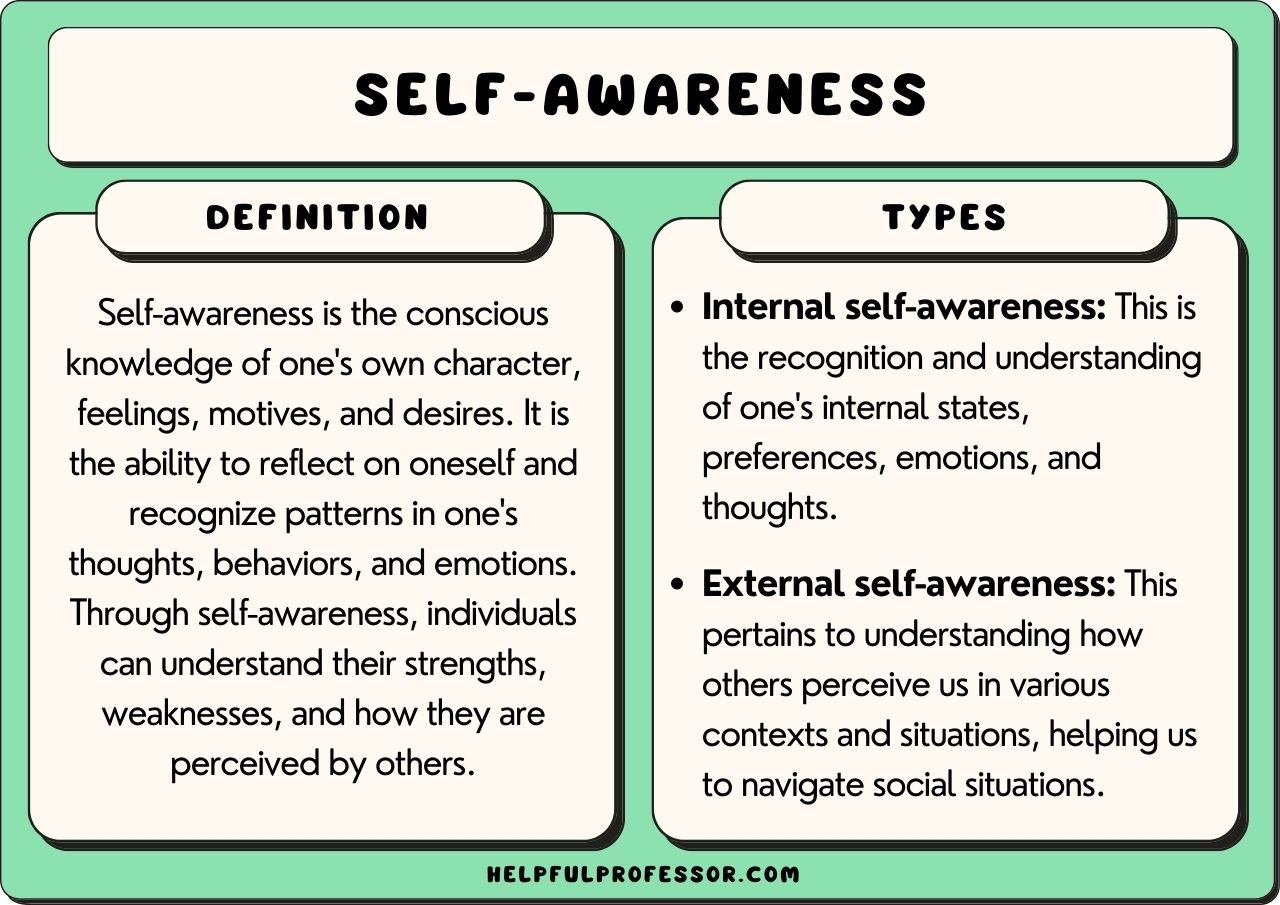Define:self-aware

Self-awareness, often regarded as the cornerstone of personal growth and development, is a multifaceted concept that transcends mere consciousness. It delves into the depths of our being, unraveling layers of introspection and understanding. To define self-awareness is to embark on a journey of self-discovery, where one navigates through their thoughts, emotions, and actions with clarity and insight. In this article, we embark on a quest to unravel the essence of self-awareness, exploring its significance, manifestations, and transformative power.
What is Self-Awareness?
At its core, self-awareness is the ability to recognize and understand oneself – to perceive our thoughts, feelings, and behaviors in relation to our environment and experiences. It encompasses both introspection, the inward examination of one’s own thoughts and feelings, and extrospection, the observation and understanding of how we interact with the world around us. Self-awareness involves being cognizant of our strengths, weaknesses, values, beliefs, and motivations, and how these factors influence our perceptions and actions.
Manifestations of Self-Awareness:
Self-awareness manifests itself in various forms, ranging from introspective reflection to mindful observation. It involves:
- Reflection: Engaging in introspective practices such as journaling, meditation, or contemplation allows individuals to delve deep into their thoughts and emotions, gaining insights into their inner workings and patterns of behavior.
- Emotional Intelligence: Self-awareness is closely intertwined with emotional intelligence – the ability to recognize, understand, and manage one’s own emotions, as well as the emotions of others. Those who are self-aware are adept at navigating their emotions, responding to situations with empathy and resilience.
- Authenticity: A hallmark of self-aware individuals is their authenticity – the alignment between their inner values, beliefs, and actions. They are comfortable in their own skin, unafraid to express their true selves and stand by their convictions.
- Acceptance of Feedback: Self-awareness fosters a willingness to seek and accept feedback from others, recognizing it as an opportunity for growth and learning rather than criticism. Such individuals are open-minded and receptive to different perspectives, using feedback to refine their self-understanding and improve their relationships.
The Power of Self-Awareness:
Self-awareness is a catalyst for personal growth and transformation, empowering individuals to lead more fulfilling and purpose-driven lives. It fosters:
- Clarity and Direction: By understanding their strengths, weaknesses, and values, self-aware individuals gain clarity about their goals and aspirations, enabling them to chart a course for their personal and professional growth.
- Effective Communication: Self-awareness enhances communication skills, as individuals are better able to articulate their thoughts and emotions, listen actively, and empathize with others’ perspectives. This fosters deeper connections and more meaningful relationships.
- Resilience and Adaptability: Self-aware individuals are resilient in the face of challenges, as they possess the self-understanding and emotional intelligence to navigate adversity with grace and perseverance. They adapt to change more readily, leveraging their strengths and resources to overcome obstacles.
Conclusion:
In essence, self-awareness is the cornerstone of personal mastery – the journey of knowing oneself deeply and authentically. It is a lifelong endeavor that requires introspection, reflection, and a willingness to embrace vulnerability. By cultivating self-awareness, individuals unlock the potential for growth, resilience, and fulfillment, enabling them to live more purposefully and joyfully. As we embark on this journey of self-discovery, let us heed the words of Socrates: “Know thyself.” For in knowing ourselves, we unlock the key to unlocking our true potential and leading a life of meaning and significance.





